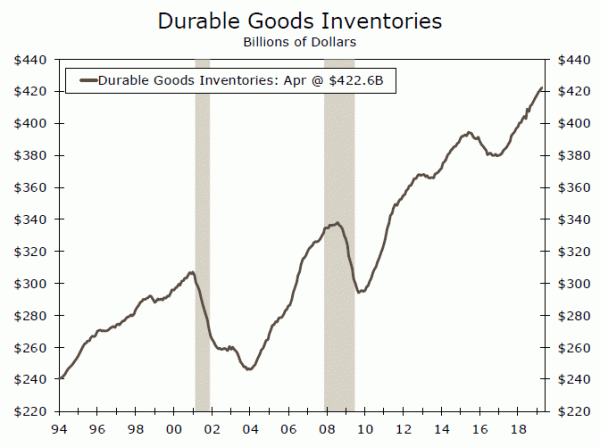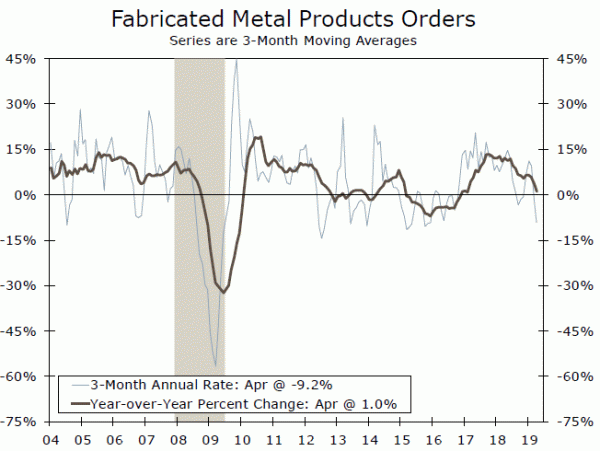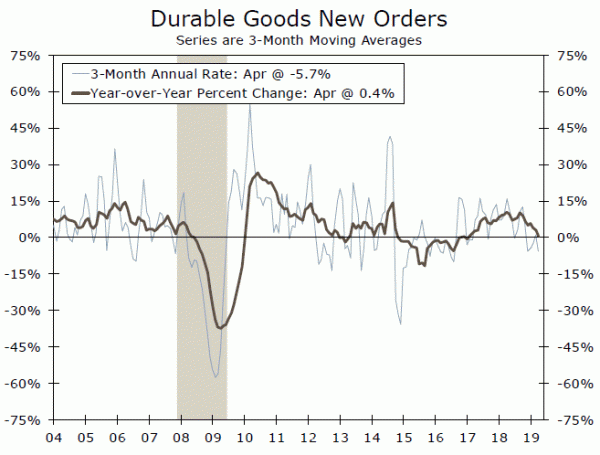Durable goods fell 2.1% in April. While a 25.1% plunge in civilian aircraft orders weighed on the headline, the underlying details were not terribly encouraging. Second quarter equipment spending is now likely to fall.
It’s More than an Aircraft Story
Durable goods orders fell 2.1% in April. This was not a huge surprise. Of the 66 economists who submitted a forecast to Bloomberg for durable goods orders this month, none had expected an increase. Boeing’s ongoing challenges with its 737 MAX family of aircraft were expected to manifest themselves in today’s report and were certainly evident in the 25.1% decline in civilian aircraft orders. That said, the weakness reaches beyond just aircraft. It is a matter of speculation as to when Boeing will have a fix in place for the 737 MAX and when shipments pick back up again. Most aerospace analysts expect this to be a matter of months, at which point we would expect to see headline durable goods orders boosted by aircraft for a few months.
Autos Slump
It would not be accurate however to say that the weakness here is all aircraftrelated as a number of other categories posted declines as well. Orders for motor vehicles and parts, now down for the third time in the first four months of the year, posted a decline of 3.4% in April—the second largest one month drop in bookings for autos in the past four years. In a separate report, sales to dealers from auto makers slowed to an annualized pace of just 16.4 million in April; that too is the second slowest pace in the past four years.
Momentum Loss Even Before Tariff Escalation
Other key areas are also reflecting some of the slowing indicated by the April drop in the ISM index and in some of the regional Fed surveys. Notably, primary and fabricated metals have both experienced declines in two out of the past three months.
Recall that these data are for April and do not reflect the recent escalation in the trade war, which lifted tariffs to 25% on roughly $200 billion of goods coming in from China. The precise timing of the new higher rate will be phased in throughout May, but effective June 1, imports on affected goods from China will be subject to the higher rate.
In addition to the pronounced volatility in global financial markets, the tariffs have been identified in the ISM report and in corporate earnings announcements as a factor negatively impacting profitability as well as creating supply chain headaches. Whether businesses are taking on additional inventory in anticipation of higher future costs or because they are concerned about product availability is unclear, but an inventory build is clearly under way. The inventory-to-shipments ratio rose to 1.67—the highest since July 2017.
With non-defense capital goods shipments having fallen in four out of the past five months, including a 3.0% drop in April, equipment spending is poised to decline in the second quarter.



